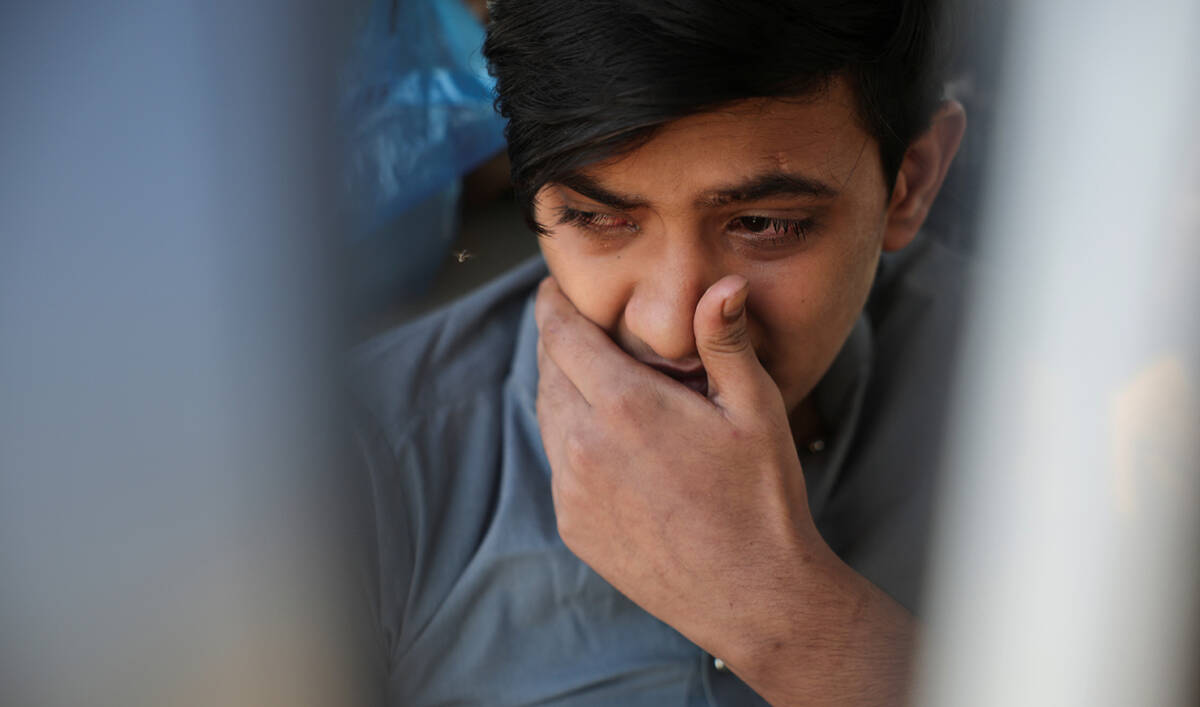ISLAMABAD: A Pakistani Supreme Court judge on Tuesday remarked that a “series of errors” by the country’s election regulator forced candidates backed by former prime minister Imran Khan to contest elections as independent ones, as a full-court bench of the top court heard a set of petitions challenging the denial of reserved seats in parliament to the Khan-backed Sunni Ittehad Council (SIC) party.
A 13-member bench of the top court, a full court, heard a set of petitions filed by the chairman of the SIC on Monday, challenging the denial of the reserved seats to the party and their distribution to other parties that are now part of Prime Minister Shehbaz Sharif-led ruling coalition.
Weeks before the national election, Khan’s Pakistan Tehreek-e-Insaf (PTI) party was stripped of its iconic election symbol of the cricket bat on technical grounds, and all its candidates had to contest polls as independent ones. After the election in which Khan-backed independents won the most seats overall, they joined the SIC to claim a share of the reserved seats in parliament for women and religious minorities. Under Pakistan’s election rules, political parties are allotted reserved seats in proportion to the number of parliamentary seats they win in the election. This completes the National Assembly’s total strength of 336 seats.
Khan’s party is hopeful it can win back at least 78 reserved seats in parliament that were allotted to rival parties after the elections. The PTI had accused the Election Commission of Pakistan (ECP) og being biased and denying it a level playing field months before the national polls were held. The ECP ruled in March that the Khan-backed SIC party was not eligible for extra reserved seats in the legislature, dealing a blow to the embattled group’s governing prospects and proving to be a major setback for Khan, who is in jail following a string of convictions. The election regulator’s decision was upheld by the Peshawar High Court but last month the Supreme Court overruled the verdict, followed by the ECP suspending 77 lawmakers from PM Sharif’s ruling coalition.
“All of these returned candidates were PTI candidates forced by cascading series of errors of law by the ECP to take on the garb of independents,” Justice Munib Akhtar, one of the 13 members of the bench, remarked during the hearing.
Justice Akhtar wondered whether it was fair to deny reserved seats to the SIC “simply because now they [wining candidates] have taken shelter” in the party.” The judge emphasized that it was important to establish whether the SIC was a registered political party with Pakistan’s election regulator.
He said that a candidate could be deemed an independent one only if he declared in the nomination paper that he does not belong to any political party, recalling that the PTI-backed candidates passed the scrutiny process and subsequently got elected after their nomination papers were accepted by the authorities.
“How can the ECP’s law declare PTI’s candidates as independents,” Justice Akhtar wondered.
The court then adjourned the hearing till June 24.
Earlier, the PTI said it was hopeful of getting justice from the top court in the case.
“The reserved seats are our right as per the constitute on, how can the election commission deprive us of our legal right,” Advocate Naeem Haider Panjutha, a spokesperson for Khan, told Arab News.
“We are quite hopeful the top court will provide us justice by returning our stolen mandate,” he said.
“JUSTICE FROM THE COURTS”
With the ECP’s notification suspending 77 lawmakers, the strength in the National Assembly of PM Sharif’s ruling Pakistan Muslim League-Nawaz (PML-N) reduced from 121 to 107 while that of its main coalition partner, the Pakistan Peoples Party (PPP), is down from 72 to 67.
This means the ruling coalition has lost its two-thirds majority in the National Assembly, with its numerical strength decreasing to 209 from 228. In the 336-member National Assembly, the figure to attain two-thirds majority is 224, without which the government cannot push through constitutional amendments.
Sharif formed a weak coalition with other parties after February general elections produced a hung parliament. The PML-N’s 79 and the PPP’s 54 seats together made a simple majority in parliament to form a government and they also roped in smaller parties in the coalition.
Candidates backed by Khan won the most seats, 93, but did not have the numbers to form a government. Khan and his party have rejected the results of the elections, alleging widespread rigging.
Khan’s party got other good news this week as the Islamabad High Court overturned the leader’s conviction on charges of leaking state secrets. Earlier this year, Khan, 71, had been sentenced to 10 years in prison by a lower court for making public a classified cable sent to Islamabad by Pakistan’s ambassador in Washington in 2022. He has been in jail since August last year and faces a slew of legal cases.
“Our leadership and workers have been implicated in hundreds of bogus cases,” Panjutha said, “and gradually we are getting justice from the courts.”
‘Series of errors’ by Pakistan’s election regulator forced Khan candidates to contest as independents— judge
https://arab.news/j9pca
‘Series of errors’ by Pakistan’s election regulator forced Khan candidates to contest as independents— judge

- Pakistan’s too court hears petitions by Sunni Ittehad Council challenging denial of reserved seats to party
- Justice Munib Akhtar questions election regulator’s role in declaring PTI candidates as independent ones



















